Table of Contents
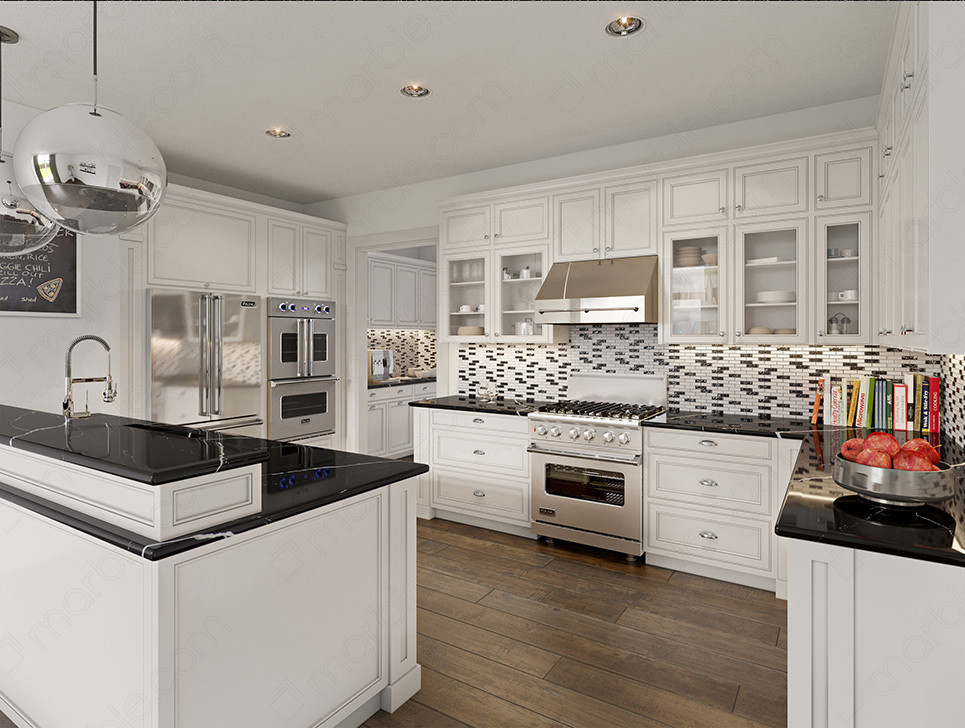
One of the most important things to consider when choosing material for your kitchen countertop is durability. Your kitchen is one of the most used rooms in your home. No matter the day, the room will likely be used for cooking, storage, or even entertaining. You will want your kitchen to feel effortless and easy to use, and you will especially not want to be stuck worrying about your countertops every day.
Two of the most durable materials for countertops are quartz and granite. Both are well-known for their dependability and durability, in addition to the many beautiful colors available for purchase. With both stones getting such high praise from both designers and homeowners alike, it can be hard to choose.
[get_quote]
There are many questions worth asking before you buy your new countertops. Which stone is heat resistant? Is quartz harder than granite? Does granite require more maintenance? We are here to answer some of these questions.
In this guide, we break down the two materials’ durability, resistance, and care. With this information in tow, your next kitchen remodel will be a breeze.
Quartz
What is Quartz?
Quartz is an engineered stone. Although natural quartz does exist, in construction, quartz refers to a combination of materials: around 90 percent natural quartz, 10 percent polyresin, and some added pigments for color and design. The exact percentage of these materials vary by brand.
The natural quartz mineral is found in quarries around the world. In the United States, much of the quartz is mined from the Arkansas quartz belt, an area in and around the state of Arkansas with 30 to 40 quartz mining locations. This mineral is formed typically in either igneous rocks, rocks formed from years of lava cooling, or environments with geothermal waters.
Once mined and combined with polyresin and pigments, this mixture is transferred into a mold, cured, and then sold as a slab.
Quartz is an extremely durable stone, well-known for its ability to withstand harsh conditions. Let’s break down this stone’s fantastic traits.
Hardness
Mineral hardness is measured through German scientist Friedrich Mohs’ scale of hardness, created in 1822. This scale measures the mineral’s scratch resistance. For example, a mineral will be able to be scratched by minerals ranked above it. A ranking of 1, which is where soapstone sits, means the mineral is very soft, meanwhile, a ranking of 10, which is where diamond sits, means the material is very hard.
Quartz sits typically at 7 on the Mohs Hardness Scale, making it one of the hardest materials around that is used for kitchen countertops.
Resistance
Quartz is resistant to a number of different kinds of damage:
Quartz is stain-resistant, as it is a nonporous material. This does not mean, however, that it is stain-proof. Certain items can still cause a stain or discoloration, including paint thinners, coffee and tea, and more abrasive household cleaners. The presence, albeit small, of polyresin and pigments in the material means that some substances will react chemically with the surface and create a stubborn stain. Regardless of the substance, we recommend wiping away all liquid spills as soon as possible. Despite these warnings, quartz is remarkably resistant to stains and is highly recommended in high spill environments.
Quartz is also scratch-resistant. As it sits on the Mohs scale at a 7, most household items will not be able to scratch its surface, including steel kitchen knives, which typically sit on the Mohs scale at around a 5 or 6.
Quartz, unfortunately, is not heat resistant. While it will not burn from small amounts of heat, it can not handle excessive heat above 300 degrees Fahrenheit. This heat intolerance is in large part due to the presence of polyresin, a plastic. Hot items like pots, pans, or even heated hair tools can cause significant damage such as burn marks or discoloration. These items should have a trivet or hot pad between them and your quartz countertops.
Care
In order to maintain the fantastic durable qualities of this stone, proper care must be taken.
Quartz should be wiped down daily with a soapy cleaner, usually a combination of water and mild dish detergent solution. Once the surface is clean, it should be dried off immediately. Homeowners should avoid more abrasive cleaners as they can cause permanent damage.
This stone does not require a sealant as it is nonporous on its own as it contains polyresin. Sealant, waxes, and polishes should not be used on this stone type at all.
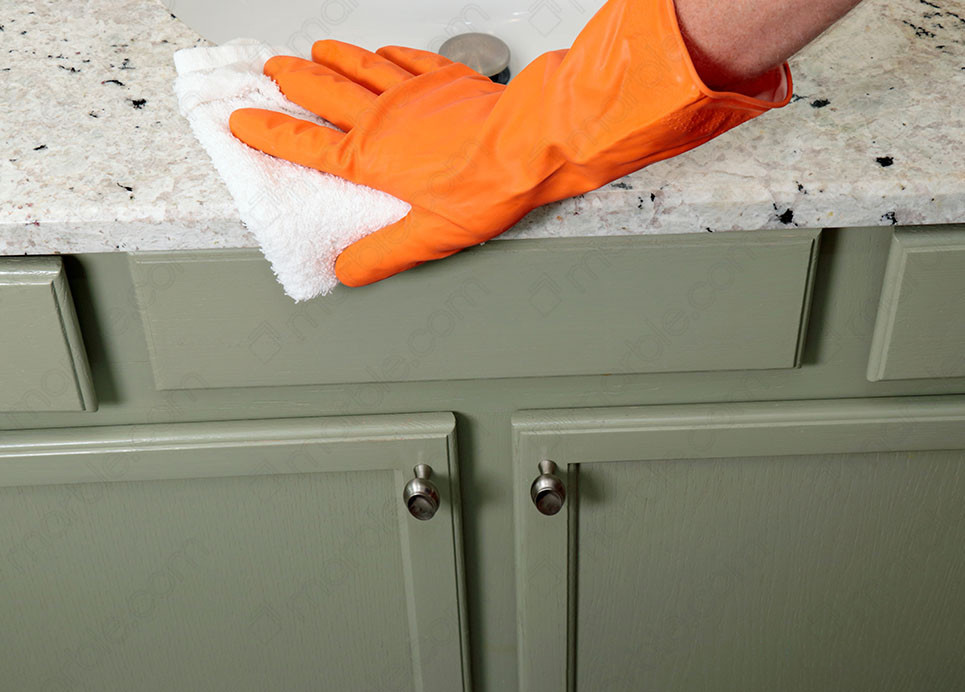
Granite
What is granite?
Granite is naturally sourced. It does not contain additives, meaning that the stone used in your countertops is roughly the same material as found in nature. It is one of the most common igneous rocks, meaning it was formed through the cooling of lava over millions of years.
It is composed of a number of minerals, including natural quartz, which we described previously, feldspar, and subtle amounts of other minerals. It is common in the Earth’s continental crust, or the rock forming each continent.
This stone is found throughout the world, with different quarries having different colored granite. Some of the most common places for this stone to be mined include Brazil, India, Italy, and China. Each area has unique aesthetic characteristics. It is typically found in large quantities.
Like quartz, granite is known for its amazing physical properties. Let’s take a look at each of granite’s features.
[get_quote]
Hardness
As we described before, minerals’ hardness is measured through the Mohs hardness scale. On this scientific scale, granite typically sits at a 6. This will vary with each slab, with some slabs sitting at a 5 and others at a 7, but it will be roughly around this area on the scale.
Resistance
Granite is one of the most resistant stones available on the market. It has high resistance to many things:
Granite is stain resistant with a sealant. As long as a sealant is applied to this stone, it will remain resistant to most substances. Without this sealant, it is a more porous material that will absorb liquids and create potentially irreversible damage. Even with a sealant, we recommend immediately cleaning up any spilled liquids or dropped food. Some culprits of staining include wine, coffee, certain kinds of juices, and abrasive cleansers.
Granite is scratch resistant to most items as it sits at around a 6 on the Mohs Hardness scale. Despite this high ranking, we recommend not doing extraneous activities on it like chopping directly on it or dropping hard items on it. With proper precautions, there will be no worries in terms of keeping your countertop safe.
Granite is also heat resistant. As a natural stone without additives, it can remain durable against extremely high temperatures. It is still recommended that homeowners take precautions with hot items and utilize hot pads or trivets. You also should not inflict your countertops to extreme temperature changes, such as placing a hot item down and then replacing it with a cold item. With all this said, granite is one of the best materials for areas with hot items as it can easily withstand up to 480 degrees Fahrenheit, and can even withstand past that.
Care
Granite requires a bit more care than quartz. In terms of daily cleaning, it also requires a soapy water solution using mild dish detergent. Abrasive cleaners, such as ones that contain bleach or ammonia, should be avoided as they could damage the surface easily.
Natural stone like granite requires a sealant, which assists in making the stone stain resistant as it will make the surface less porous. This sealant will need to be reapplied every six months to a year. Homeowners can tell if the sealant should be reapplied by doing a water test, which tests to see if a water droplet is absorbed by the surface. The process to reapply sealants is remarkably easy and can be completed by the homeowner rather than a professional.
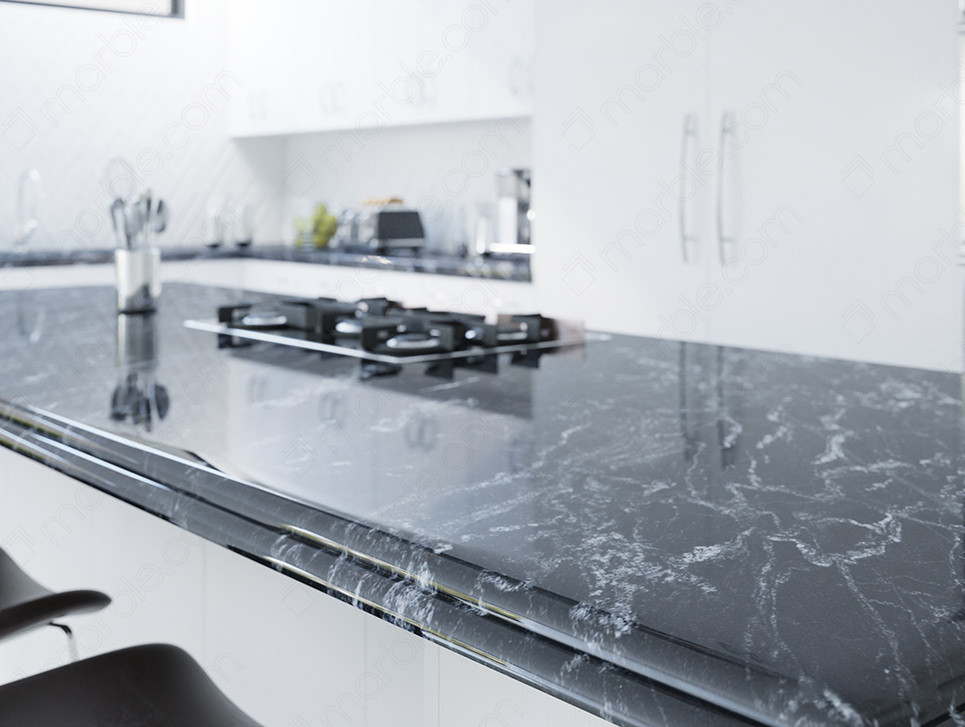
Comparison
Quartz
Hardness of 7, using Mohs Hardness Scale
Resistant to staining and scratching
Care includes soapy water daily cleaning
Granite
Hardness of 6, using Mohs Hardness Scale
Resistant to staining, scratching, and heat
Care includes soapy water daily cleaning, periodic resealing
With the above information, it can be hard to choose a definitive answer.
In terms of hardness, quartz narrowly wins with a Mohs hardness scale rating of 7, while granite typically sits at a 6. There are granite slabs that exist with a 7, however, in terms of their average hardness, quartz wins. While numerically one stone wins, there is actually not much of a difference in terms of durability between a 6 or a 7.
In terms of everyday household use, granite is the clear winner because of its resistance to damage from everyday kitchen activities. While both stone materials are stain and scratch-resistant, only granite is heat resistant. Quartz requires extreme precautions to keep hot items like pots and pans from its surface and will have issues with temperatures past 300 degrees Fahrenheit. For all categories of potential damage, even if a stone is considered resistant, we recommend still taking precautions. These materials are not damage-proof, and homeowners should still treat their countertops with love and care.
In terms of care, both stones require daily cleaning with soapy water. Only granite, however, also requires a sealant. While using the reapplication of sealants is an easy task, it does require some effort. Because of this extra step, quartz wins this round.
With these three things in mind, quartz is the winning stone. There is still, however, much, much more to consider when choosing the right stone material for your home.
Other things to consider
One of the biggest things to consider before any purchase is price. Quartz typically goes for $50 to $120 per square foot, while granite comes in at a bit cheaper price at $35 to $100 per square foot. The wide range in pricing for both materials is due to the many different designs and patterns available.
Appearance is another factor to consider. Marble.com has a wide variety of colors and designs. There are over 600 granite countertop colors, and over 150 quartz colors. With the wide selection, be sure to look carefully for the perfect piece for your kitchen’s aesthetic. The other details may not be worth it if you can’t find a stone that matches your design vision.
As a natural stone, granite slabs are slightly different from slab to slab. Some slabs may have more or less patterning than others. Because of this, homeowners will need to choose their stone carefully. Quartz is engineered, meaning every slab will be exactly the same.
[get_quote]
Lastly, consider what is most important for you in terms of your own lifestyle. Do you cook often? A countertop with heat resistance, like granite, may be better suited for you. You don’t want to have to constantly worry about your countertops being damaged from hot pots and pans. Do you not have time for extra home maintenance? Consider quartz, which only requires regular soapy water, and does not need a sealant reapplication.
Both materials are extremely durable, with many great physical properties. We recommend both quartz and granite for your kitchen countertops, but they are also great additions elsewhere in your home, from vanity tops to backsplashes. Granite can even be used as a fireplace surround. The world is your oyster when you use Marble.com’s fantastic stone material in your next home remodeling project.













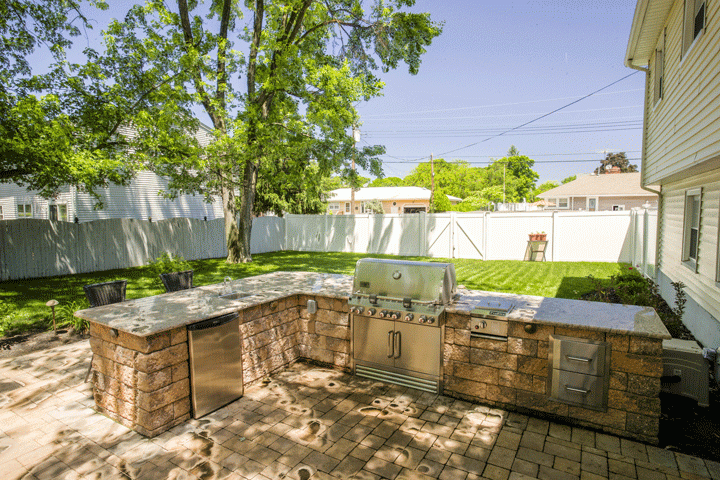
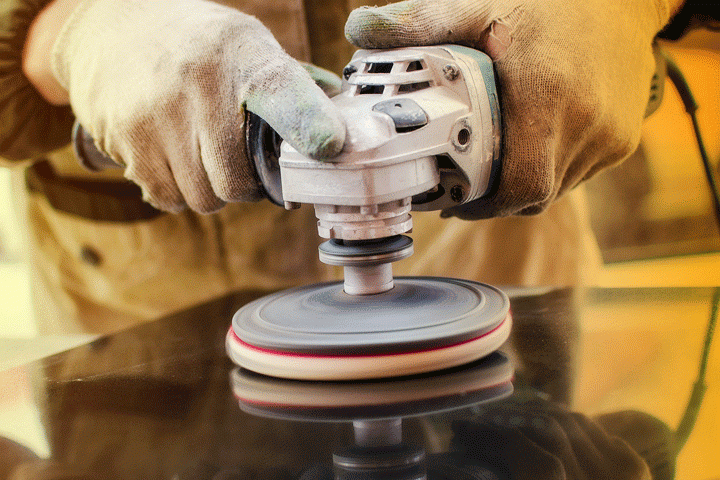
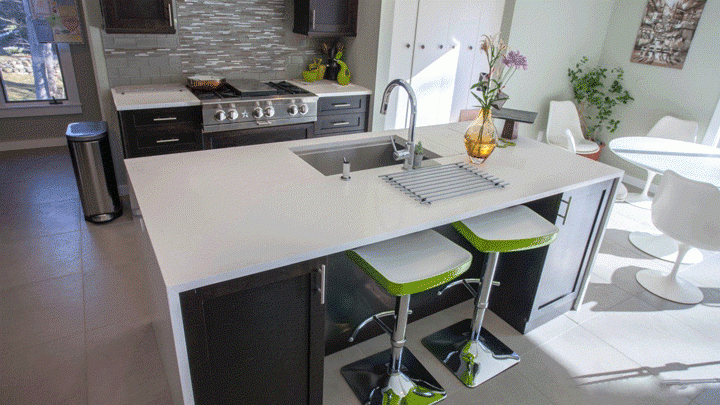
 The article helped me immensely
The article helped me immensely
 I’m now more informed on the subject
I’m now more informed on the subject
 I have questions about Marble.com
I have questions about Marble.com
 The article was not accurate at all
The article was not accurate at all
 There is a serious lack of information
There is a serious lack of information
 I have questions about Marble.com
I have questions about Marble.com